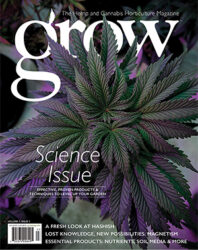Dolphin research has revealed a new type of endocannabinoid. Bottlenose dolphins are similar to humans in that they have long lives, have large brains, and are also mammals. Dolphins consume pentadecanoic acid (called C15:0), which is present in dairy fat, as well as some fish and plants. An article in Scientific Reports explained the attempts of a team of San Diego–based marine mammal researchers to further understand how higher concentrations of C15:0 might lower risks of developing chronic diseases like cardiovascular disease, heart failure, and type 2 diabetes. As it turns out, when dolphins were fed a modified, high-C15:0 fish diet, bloodwork revealed that C15:0 was converted into a novel endocannabinoid called pentadecanoylcarnitine (PDC). The PDC seems to result in lower obesity and diabetes, and a reduced proliferation of blood-based cancers and inflammation in general, and specifically to “inflammation in tissues of the lungs (e.g., COPD, fibrosis), skin (e.g., dermatitis, psoriasis), as well as those associated with cardiovascular diseases.” When bottlenose dolphins were fed the higher-C15:0 fish diet, both C15:0 and PDC concentrations increased within the first month, and remained higher than baseline controls throughout the 6-month study.
Newsletter
Sign up for our email newsletter
"*" indicates required fields
We won't share or sell your information.
Contact Us
Email:
help@growmag.com
Phone:
541-762-GROW (541-762-4769)

